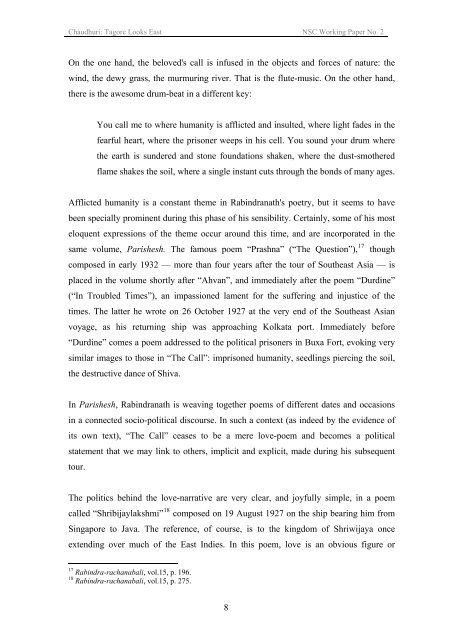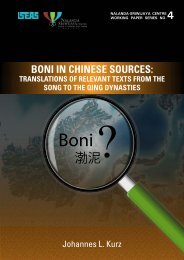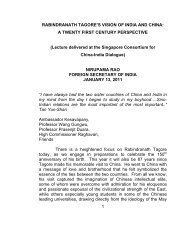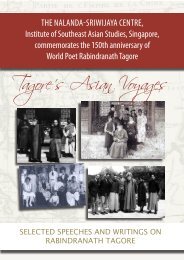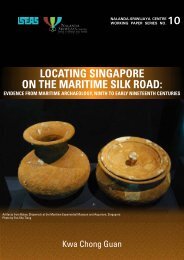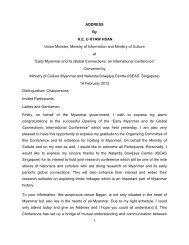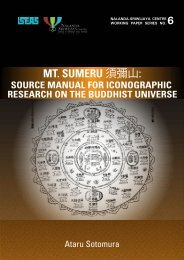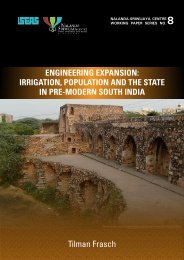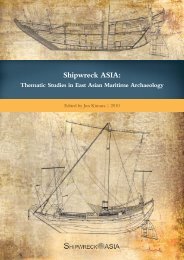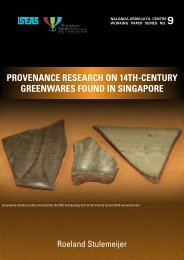2 TAGORE LOOKS EAST - Nalanda-Sriwijaya Centre - iseas
2 TAGORE LOOKS EAST - Nalanda-Sriwijaya Centre - iseas
2 TAGORE LOOKS EAST - Nalanda-Sriwijaya Centre - iseas
- No tags were found...
Create successful ePaper yourself
Turn your PDF publications into a flip-book with our unique Google optimized e-Paper software.
Chaudhuri: Tagore Looks East NSC Working Paper No. 2On the one hand, the beloved's call is infused in the objects and forces of nature: thewind, the dewy grass, the murmuring river. That is the flute-music. On the other hand,there is the awesome drum-beat in a different key:You call me to where humanity is afflicted and insulted, where light fades in thefearful heart, where the prisoner weeps in his cell. You sound your drum wherethe earth is sundered and stone foundations shaken, where the dust-smotheredflame shakes the soil, where a single instant cuts through the bonds of many ages.Afflicted humanity is a constant theme in Rabindranath's poetry, but it seems to havebeen specially prominent during this phase of his sensibility. Certainly, some of his mosteloquent expressions of the theme occur around this time, and are incorporated in thesame volume, Parishesh. The famous poem “Prashna” (“The Question”), 17 thoughcomposed in early 1932 — more than four years after the tour of Southeast Asia — isplaced in the volume shortly after “Ahvan”, and immediately after the poem “Durdine”(“In Troubled Times”), an impassioned lament for the suffering and injustice of thetimes. The latter he wrote on 26 October 1927 at the very end of the Southeast Asianvoyage, as his returning ship was approaching Kolkata port. Immediately before“Durdine” comes a poem addressed to the political prisoners in Buxa Fort, evoking verysimilar images to those in “The Call”: imprisoned humanity, seedlings piercing the soil,the destructive dance of Shiva.In Parishesh, Rabindranath is weaving together poems of different dates and occasionsin a connected socio-political discourse. In such a context (as indeed by the evidence ofits own text), “The Call” ceases to be a mere love-poem and becomes a politicalstatement that we may link to others, implicit and explicit, made during his subsequenttour.The politics behind the love-narrative are very clear, and joyfully simple, in a poemcalled “Shribijaylakshmi” 18 composed on 19 August 1927 on the ship bearing him fromSingapore to Java. The reference, of course, is to the kingdom of Shriwijaya onceextending over much of the East Indies. In this poem, love is an obvious figure or17 Rabindra-rachanabali, vol.15, p. 196.18 Rabindra-rachanabali, vol.15, p. 275.8


